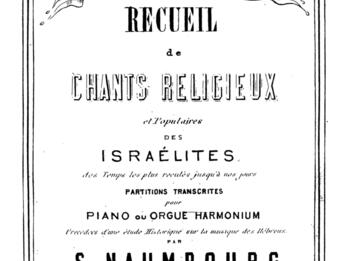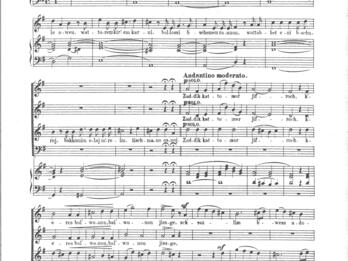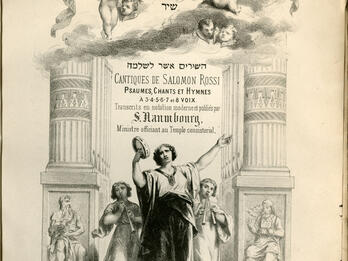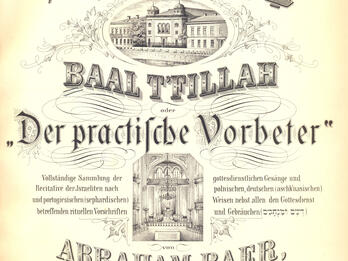The Flower
Elyokum Tsunzer
Date Unknown, 19th-early 20th century
Where everyone travels, in the middle of the road,
there is a wonderful flower.
It’s been lying there and rotting for several days now.
The wind blows it around,
and it cries out and weeps a great plea:
“Slowly—watch where you’re going!
Have mercy—see, you’re trampling
a flower with a beautiful blossom!
Someone have pity—
just come here
and pick…
Engage with this Source
Related Guide
Music and Opera in Jewish Culture
1750–1880
One of the most striking changes in European Jewish culture toward the later eighteenth century was marked by the entry of Jews into art music, opera houses, and the stage.
Creator Bio
Elyokum Tsunzer
ca. 1836–1913
Elyokum Tsunzer was born in Vilna and became “the father of Yiddish poetry,” a prolific and widely revered versifier. He wrote before, after, and even during his conscription in the Russian army, jotting poems in the soldiers’ barracks. Poetry aside, he was a well-known singer, in high demand at Russian weddings and other public occasions. Tsunzer’s unflinching and faintly lugubrious melodies chronicled the plight of Jews under tsarist rule.
You may also like

Aggudat Shirim
Aggudat Shirim (Collection of Songs) was one of several collections of synagogue music published by Samuel Naumbourg between 1847 and 1874. It included a scholarly article about Jewish music.
Song of the Railway
A whole world of railways appeared in our time
They carry their passengers—poor men and rich.
Admire the wonder, but bear this in mind:
It’s really a parable, meant just for you.
It is we who are…

Psalm 92, Od yenuvun (They Shall Still Bring Forth)
This setting for Psalm 92 is one example of the innovative music composed by Louis Lewandowski, Samuel Naumbourg, and Salomon Sulzer (1804–1890) for the synagogues of the new Reform movement. Their…

Title Page for His Version of Salamone de Rossi’s Hashirim asher le-Shelomoh (The Songs of Solomon)
Salamone de Rossi (1570–1630), composer, singer, violinist, and musician in the Gonzaga court in Mantua, is best known for his introduction of polyphony into synagogue music. Composer Samuel Naumbourg…

Baal T’fillah: Oder, Der practische Vorbeter (Prayer Leader: Or The Practical Litanist)
The first edition of Baal T’fillah was published in 1871. A compendium of over 1,500 Jewish traditional melodies, according to the traditions of German, Polish, and Portuguese (Sephardic) Jews, the…
Statement upon the Publication of Denkschrift an die hochgeehrte Wiener israelitische Cultus (Memorandum to the Esteemed Viennese Israelite Religious Community)
In the first place, it behoves us to fight the opinion that the regeneration of the service can be achieved only by a complete break with the past, by abolishing all traditional and inherited…


